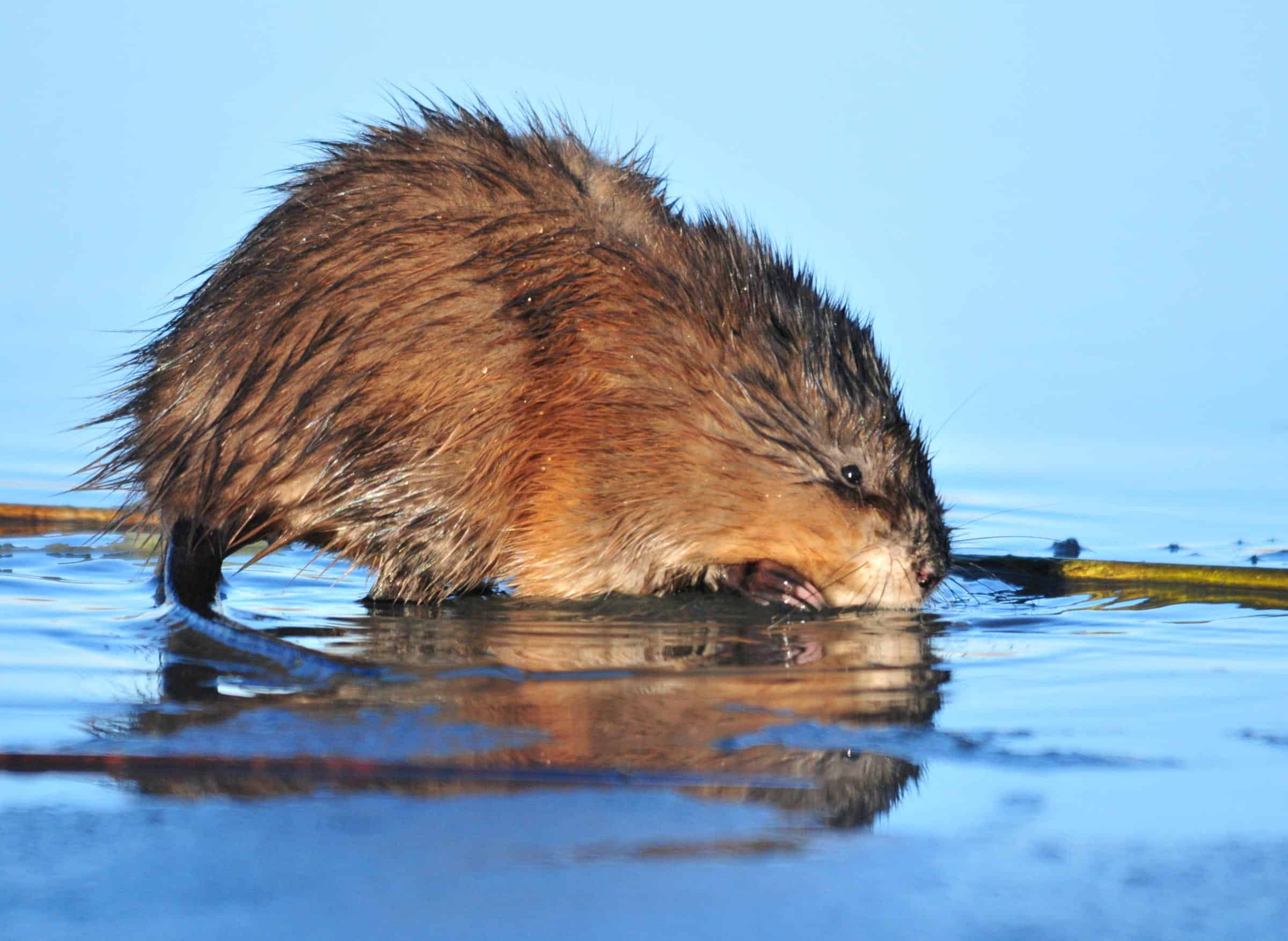If you live in a desert, you’re not likely to have to worry about muskrats, but here in Missouri, there aren’t a lot of deserts. Check out these 5 reasons you do not want muskrats on your property and tips for controlling them.
Why Muskrats Are Bad For Your Home
If you live in a desert, you’re not likely to have to worry about muskrats, but here in Missouri, there aren’t a lot of deserts. Check out these 5 reasons you do not want muskrats on your property and tips for controlling them.
- This creature likes to live near ponds, lakes, and other natural bodies of water. If you have a decorative pond, these pests can be a pain. Their tunneling efforts can cause embankments and water barriers to weaken, and flooding to occur. Muskrats may be the reason you’re seeing erosion or water seepage.
- Rabies. While muskrats are not considered a major threat to the spread of rabies, they are known to carry the virus. The greatest threat is for a muskrat to bite a dog that doesn’t know enough to leave it alone. When a dog gets rabies, it can spread the virus to humans. You can guard against this by making sure your dog is up to date on his rabies vaccinations.
- If you have a vegetable garden, muskrats will love you for it. They eat a wide variety of foods but prefer vegetables. In your garden, they can cause quite a lot of damage. Putting up a fence can deter these pests from their prize.
What Muskrats Eat:
If muskrats discover your property as a suitable place to eat and seek cover then they are there for a reason, generally, this is because of a food source. Muskrats are predominantly herbivores so they love natural semi-aquatic plants such as:
- Cattail
- Pickerelweed
- Bulrush
- Smartweed
- Duck Potato
- Horsetail
- Water Lily
- and More
Along with these natural plants, if you have crops on your property that could be near a muskrat home then they will do their best to share your crops. So if you grow any of the following this could be what the muskrats are eating:
- Corn
- Soybeans
- Wheat
- Oats
- Grain
- Sugarcane
- and More
How To Get Rid of Muskrats:
As mentioned earlier, muskrats usually will make a home on your property due to them finding a food source. So your first line of business is to remove their access to the food source. This could mean protecting your crops by wiring them off. This can also mean getting rid of some of the natural food sources such as cattail or pickerelweed.
This might be enough to discourage them, but more than likely, you’ll have to hire a professional like Rottler to help eradicate these pests.
Get expert wildlife control you can trust from Rottler Pest Solutions, contact us today at (877) 768-8537.


